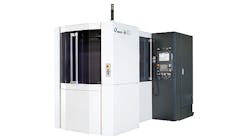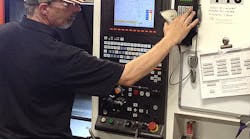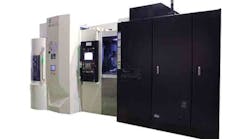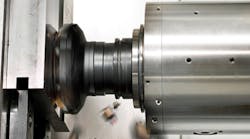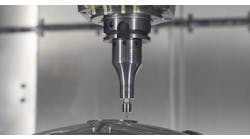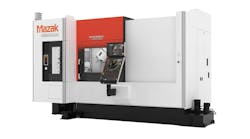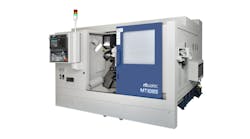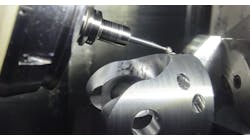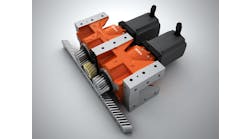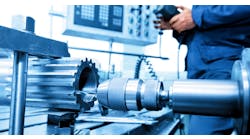Makino introduced a new horizontal machining center it claimed is “the first and only” unit of its type custom designed for machining nonferrous diecastings — a product segment that heretofore had only general purpose machine tools for its finishing operations. That situation meant metalcasting operations and others that process such workpieces did not have access to the most advanced design details and had to prolong cycle times for what typically are near-net-shape parts.
While many foundries and diecasters have CNC systems for turning, grinding, and finishing, for many of them machining is a secondary capability that demands specialized labor skillsets and expertise.
According to Makino, its new a40 HMC addresses the needs of those operations processing diecastings by enhancing the machine attributes most critical to improving productivity and per-piece costs, and offering them a machine tool specifically developed to match their production goals.
“Diecasting manufacturers are under intense pricing pressure with mandatory cost reductions from OEMs and increasing global competition,” according to David Ward, horizontal product line manager for Makino. He noted that overcoming these problems required the operators to reduce machining cycle time and eliminate unplanned down time.
He continued: “To address the cycle time issue, Makino has reevaluated each of the major castings using an Intelligent R.O.I (Reduction of Inertia) design philosophy. The new design provides superior linear and radial agility and acceleration.”
The a40’s ability to reduce part machining cycle time not only cuts down on per-piece cost, but also promotes savings in capital investment, labor, floor space, utility consumption, and tooling consumption.
The a40 has a 400-mm pallet with a workpiece capacity of 630 mm (24.8 inches) diameter by 900 mm (35.4 inches) high -- sized for diecastings involved in automotive and consumer product manufacturing.
The machine’s axis travels are: X, 560 mm (22.0 inches); Y, 640 mm (25.2 inches); and Z, and 640 mm (25.2 inches). Maximum payload is 400 kg (880 lbs).
The a40 also offers several features that improve utilization and reduce “non-cut” time, including 40-position automated tool changing and automatic pallet-changing, for uninterrupted operation.
Makino’s Intelligent R.O.I. design is a collection of technologies intended to reduce “unproductive non-cut times from part processes. In the case of a40, this means:
• Responsive CAT40 spindle acceleration to 12,000 rpm in 0.5 seconds.
• Quick completion of common tapping operations with 6,000-rpm rigid tapping synchronization speed.
• 29% faster average “time to full rapid traverse rate,” minimizing common feature-to-feature positioning time.
• Optimal acceleration performance of multiple machine systems, with evaluation of fixture and tool weights through Inertia Active Control (IAC) technology.
Unplanned downtime can eliminate profitability for high-volume production machining operations, so the reliability of the a40 machining system is significant. The a40 uses several of proven systems from Makino’s 1-Series horizontal machining centers, like single-piece X- and Z-axis covers, center-trough chip and coolant management, and dual-supported ATC mechanisms that provide exceptional reliability throughout the life of the machine.
The a40 also has new technologies that advance reliability, including:
• “Standard Vision” broken tool detection, to support unattended operation by validating cutting tool conditions quickly after each tool change.
• Dedicated tool taper cleaning nozzles that wash the tool taper with 20μ filtered coolant following each tool change, for “contamination free” tool clamping.
• Three-stage coolant filtration with 20μ hydro-cyclone, which eliminates coolant tank sludge (common during aluminum machining) and extends the time between coolant system PM or cleaning.
Diecasters seeking to maximize the productive benefits of the a40 can access Makino’s engineering and automation services, to maximize the potential productivity of their machine investment.
